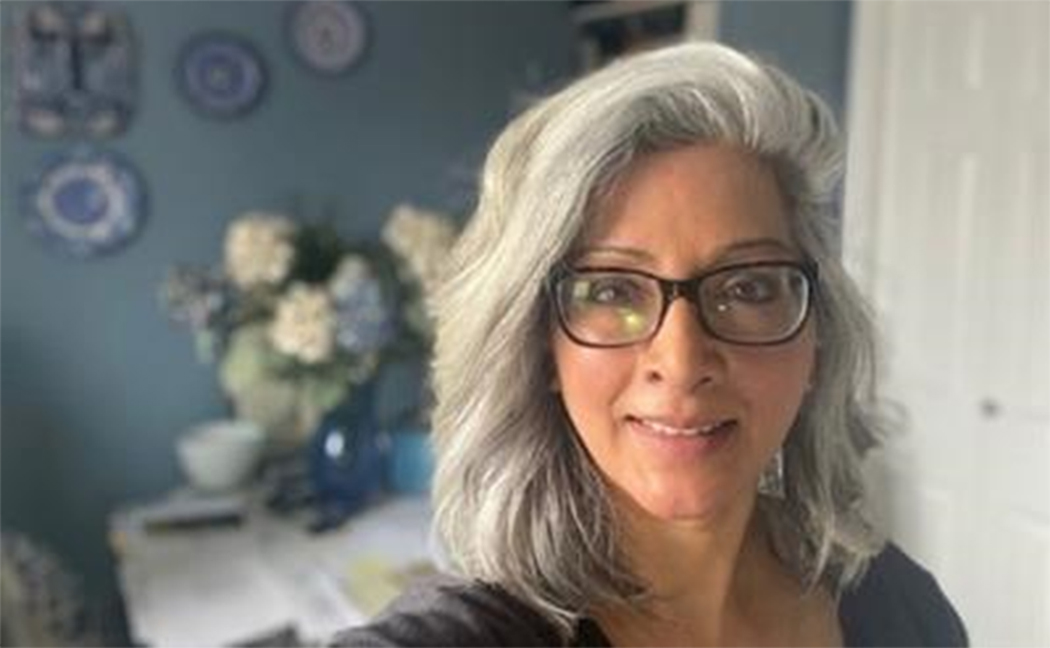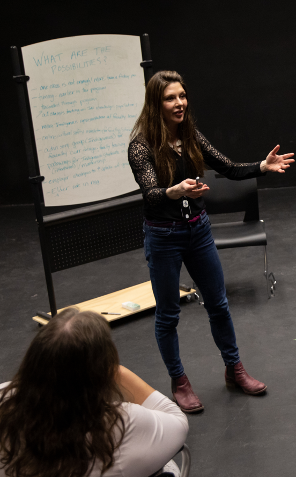
Shireen Bell
Creating culturally safe learning environments for BIPOC students
Post-secondary institutions need to move into actionable strategies to support the success of Black, Indigenous and People of Colour (BIPOC) students, a UM nursing PhD student said at a recent virtual presentation hosted by the College of Nursing.
Shireen Bell, a nursing faculty member at Red Deer College, joined the PhD program at the College of Nursing, Rady Faculty of Health Sciences in 2019. She was asked to speak at the college’s Let’s Talk About Racism in Nursing series because of her PhD research, which explores expressions of resilience in undergraduate nursing students who identify as BIPOC.
“As an educator myself, I have seen patterns of inequity among students from different BIPOC communities that prevent them from having success,” Bell said.
As examples, she noted students failing or having to withdraw from courses because of financial strain, difference in language, lack of on-campus supports or acts of intentional or unintentional racism from faculty, staff or patients in practice settings.
Bell said students would benefit from culturally safe learning environments, a concept she has also heard referred to as “safe” or “brave” spaces.
These environments could be created by collaborating with students early in the program to determine what they would consider culturally safe.
“The experiences of students from different cultures are unique, contextual and complex – it’s not one-recipe-fits-all, which makes it even more challenging,” she said.
“We tend to steer away from more sensitive or difficult conversations around racism, but really we need to increase our comfort and confidence to speak about it.”
Bell was born in India and immigrated to Canada at two-years old. She said she experienced racism from educators first-hand, including one experience in the 1990s that impaired her ability to share her writing with people for years afterward.
“I had a professor in an elective course actually separate the five of us who were visibly diverse, from different BIPOC backgrounds, and tell us that we weren’t civilized at the same rate as he was and that he did not expect us to be able to write well, and would therefore never be able to give us a mark above a C in this course,” she said.
“It was really shocking for me that a scholarly person would think and behave in that way.”

Vanessa Van Bewer
Bell commended UM Rady Faculty of Health Sciences for being the first university in Canada to have a formal disruption of racism policy, as well as the College of Nursing for developing the antiracism committee that created the monthly speaker series.
“We’ve heard from a lot of different scholars and leaders from across Canada,” Bell said. “This series is critical in fuelling us. These messages will increase our confidence and comfort in understanding what we need to do as nurses and nurse educators.”
The next event in the speaker series will feature Dr. Vanessa Van Bewer on June 10. Van Bewer is an assistant professor at the College of Nursing who weaves her background as a Métis spoken word artist and storyteller into her teaching.






